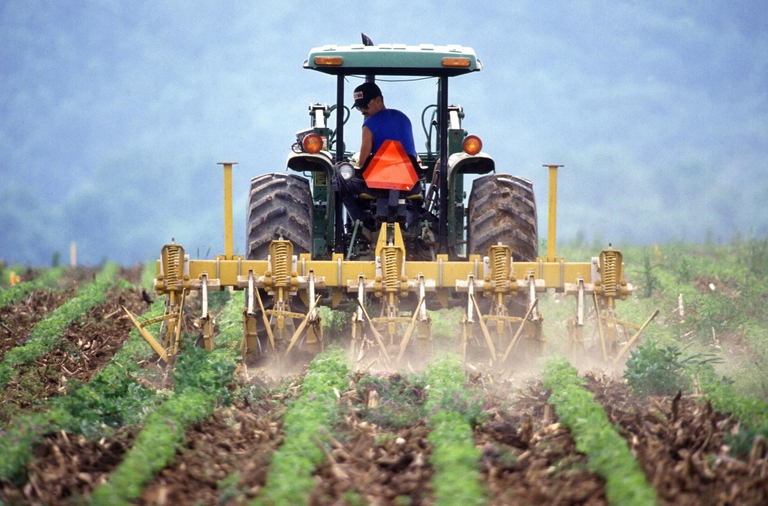
A report by Ember explains that in 2025 electricity generation from renewables (solar, wind and hydropower) surpassed that from fossil fuel sources.
Il glifosato è stato autorizzato per altri cinque anni in Europa. I paesi hanno raggiunto la maggioranza qualificata grazie (o a causa del) al cambio di rotta della Germania.
In the end they made it. The European countries of the Plants, Animals, Food and Feed Committee (PAFF) have reached an agreement and voted to renew the authorisation for glyphosate, the world’s most used herbicide and the primary ingredient in the product Roundup, synthetized by agrochemical giant Monsanto. The original proposal of the European Commission was a 10-year renewal, until 2027.
18 countries voted in favour, 9 against (including Italy and France), while only one abstained. The motion needed the approval of 55 per cent of the 28 member states representing at least 65 per cent of the population.
BM #Hendricks zur Verlängerung der Zulassung von #Glyphosat: „erfolgte ohne meine Zustimmung und entgegen der Absprache mit Bundeslandwirtschaftsminister Christian Schmidt.“ https://t.co/nLkERE2mVK
— BMUB (@bmub) 27 novembre 2017
Germany was the country that played a crucial as it allowed reaching a qualified majority after two years of debate. Germany’s vote, among other things, has divided Berlin’s government as Environment Minister Barbara Hendricks said via Twitter that the vote took place without her consent and in contrast to the deal with Agriculture Minister Christian Schmidt.
Read also: The human cost of agrotoxins. How glyphosate is killing Argentina
“Today’s vote shows that when we all want to, we are able to share and accept our collective responsibility in decision making,” said Health Commissioner Vytenis Andriukaitis.
Today’s vote shows that when we all want and put effort in it, we are able to accept and to share our collective responsibility in decision making.#glyphosate
— Vytenis Andriukaitis (@V_Andriukaitis) 27 novembre 2017
Commenting the vote, Greenpeace EU Food Policy Director Franziska Achterberg said, “The people who are supposed to protect us from dangerous pesticides have failed to do their jobs and betrayed the trust Europeans place in them. The European Commission and most governments have chosen to ignore the warnings of independent scientists, the demands of the European Parliament and the petition signed by more than one million people calling for a glyphosate ban.”
Francesca Belpoggi, head of the Cesare Maltoni cancer research centre of the Istituto Ramazzini based in Bologna, Italy, suggested to re-authorised glyphosate for no more than five years because at that time “we will have the results of our long-term study” that “will clarify the possible risks” and “if early diseases can be linked to serious diseases like cancer”. Also, “in case of negative results, they will clarify all doubts, debate and criticisms on this chemical product”.
The long-term study, started in 2015, also involves the cancer research institute of Genova, the Istituto Superiore di Sanità, the Mount Sinai School of Medicine of New York and the George Washington University.
The International Agency for Research on Cancer (IARC) of the United Nations has defined glyphosate “probably carcinogenic” for humans as it found a “positive association between glyphosate and non-Hodgkin lymphoma in laboratory animals”.
The European Commission now has to implement PAFF’s decision to regulate glyphosate ahead of 15 December, when its current authorisation expires.
Siamo anche su WhatsApp. Segui il canale ufficiale LifeGate per restare aggiornata, aggiornato sulle ultime notizie e sulle nostre attività.
![]()
Quest'opera è distribuita con Licenza Creative Commons Attribuzione - Non commerciale - Non opere derivate 4.0 Internazionale.
A report by Ember explains that in 2025 electricity generation from renewables (solar, wind and hydropower) surpassed that from fossil fuel sources.
The Tyler Prize, considered the “Nobel Prize for the Environment,” has been awarded to Toby Kiers, an American biologist working in Amsterdam.
Belgium is one of the countries most exposed to climate change. Dune–dikes are a solution to curb sea-level rise.
Between October 2024 and September 2025, the average temperature in the Arctic was 1.6 degrees Celsius higher than during the 1991–2020 period.
Undeclared conflicts of interest, paid authors, lack of transparency: one of the most cited studies on glyphosate, published in 2000, has been retracted.
The Copernicus service has released data for the first eleven months of 2025: global warming is set to come close to last year’s record.
The European Council and Parliament have reached an agreement on the European Commission’s proposal to deregulate new GMOs. But farming, organic agriculture, and environmental organizations are calling for it to be stopped.
The world’s second-largest producer has taken a historic decision. However, farms will have until 2034 to shut down.
A Greenpeace report denounces Russia’s political and economic model: a nexus of extractivism, authoritarianism and war that is destroying the environment, with serious repercussions for the global ecosystem.








